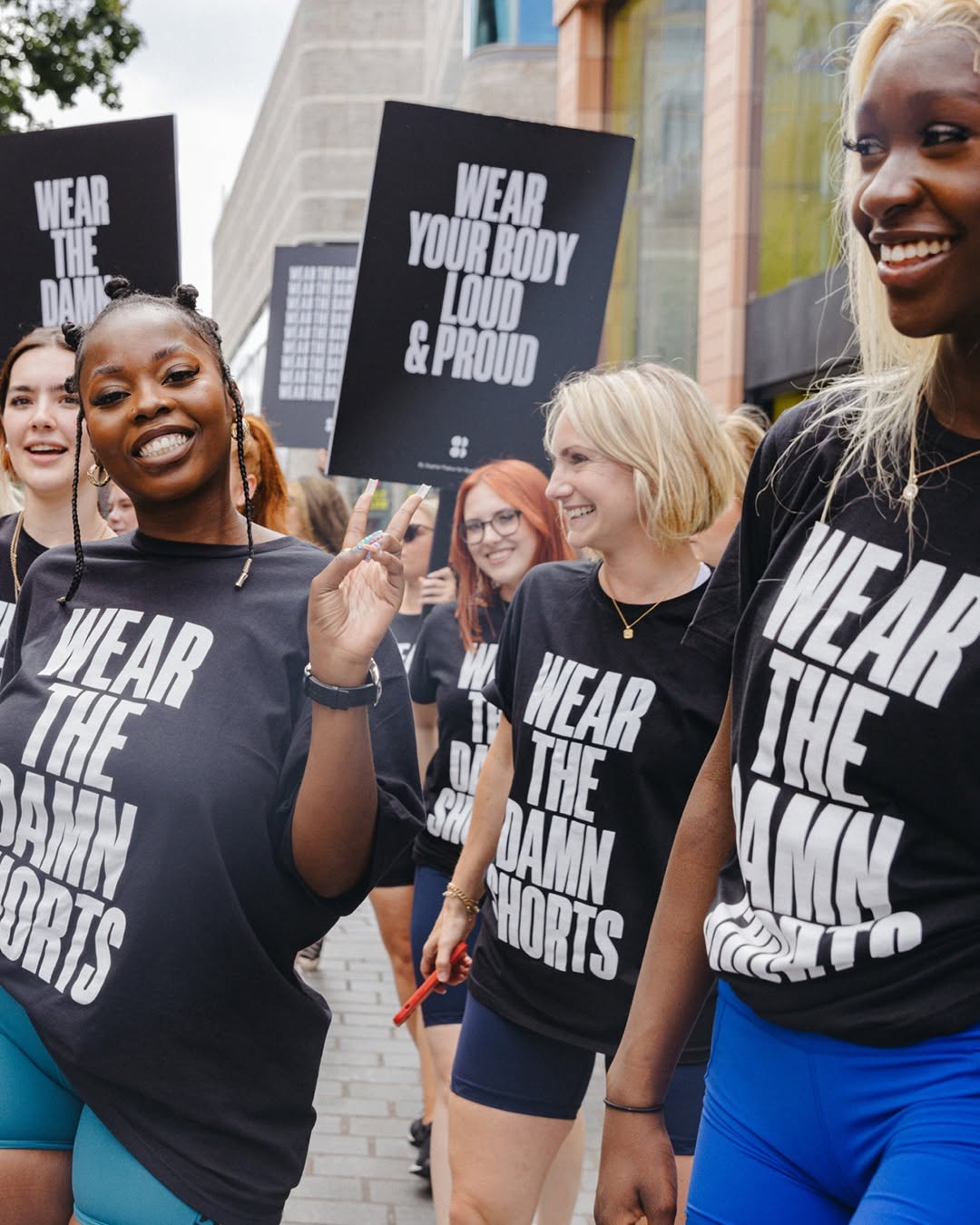The Business Battle Over Body Positivity: Inside the Sweaty Betty ‘Wear The Damn Shorts’ Dispute
Financial & Legal Risk: A CEO Wake-Up Call
The ongoing clash between global activewear brand Sweaty Betty and personal trainer Georgina Cox over the viral slogan “Wear The Damn Shorts” offers a timely lesson for executives. It highlights how intellectual-property exposure, reputational risk, and financial liability can converge when brands build campaigns around user-generated content.
For boards and CEOs, the dispute underscores the need for robust IP due diligence, creator-partnership governance, and risk disclosure. What appears as an inexpensive marketing win can morph into a costly legal and reputational challenge.
The Core of the IP Conflict: Viral Slogans and Ownership
The phrase “Wear The Damn Shorts” first appeared in a 2020 social-media post by Georgina Cox, encouraging women to embrace body confidence regardless of size. The message resonated widely, becoming synonymous with her personal brand.
By 2023, Sweaty Betty had reportedly approached Cox to collaborate on a campaign using the slogan. After initial contact and a one-off payment, Cox claims the brand used the phrase extensively—on T-shirts, in stores, and across digital channels—without her ongoing consent. She subsequently issued a cease-and-desist.
Sweaty Betty maintains that the slogan was used in good faith and that no one holds exclusive legal rights to the phrase. Yet, as seen in similar disputes, viral slogans occupy a legal gray area. While not formally trademarked, strong creator associations can create implicit IP ownership and moral rights, exposing brands to potential litigation and reputational damage.
The Empowerment Paradox: Brand Reputation on the Line
Sweaty Betty’s ethos centers on female empowerment, inclusivity, and authenticity. However, the optics of a major brand challenging a small, female entrepreneur over a body-positivity message risk undermining that very identity.
Cox has spoken publicly of feeling “betrayed” and “silenced”, while supporters rally around her online. For a company whose audience values transparency and empowerment, such a dispute creates a powerful brand paradox turning an empowerment narrative into a reputational crisis.
In the court of public opinion, perception often outweighs legal outcomes. When consumers see inconsistency between a brand’s messaging and behavior, trust erodes swiftly, impacting both loyalty and sales. For leadership teams, this case emphasizes that marketing ethics are inseparable from corporate integrity.

Georgina Cox and her partner
Marketing, SEO, and the Viral Value Chain
Viral slogans like “Wear The Damn Shorts” carry enormous SEO and engagement potential. They serve as high-value keywords and cultural connectors, driving organic reach among key demographics.
Yet the same elements that fuel visibility can backfire when a campaign becomes mired in controversy. Keyword traction built on dispute equals negative SEO sentiment. Search algorithms increasingly factor brand reputation and sentiment into ranking signals, meaning public backlash can dilute years of SEO investment.
The takeaway for CMOs and digital strategists:
-
Secure IP rights before integrating creator-originated phrases into campaigns.
-
Formalize agreements that outline licensing, attribution, and commercial use.
-
Audit existing content for potential rights issues before global rollout.
Financial & Legal Perspective: Beyond Marketing Risk
For CEOs and CFOs, the dispute illustrates how marketing missteps can become material financial events.
-
Balance-Sheet Blind Spots – Unrecognized liabilities from IP disputes can affect valuations, investor confidence, and due-diligence outcomes.
-
Cost-Benefit of Compliance – Legal reviews and licensing fees are trivial compared to the expense of litigation and the erosion of brand equity.
-
Disclosure & Governance – Public companies must assess whether influencer and content partnerships carry undisclosed IP or reputational risks.
-
Revenue & Reputation Linkage – Brand goodwill directly influences lifetime customer value. Authenticity breaches can lead to measurable declines in sales performance.

Lessons for the Activewear Industry
The Sweaty Betty–Cox case sets a precedent for the modern activewear and wellness landscape, where campaigns increasingly rely on community-driven slogans and influencer-authored content.
Key lessons for industry leaders:
-
Codify Creator Collaborations – Treat influencer partnerships as IP investments, not informal exchanges.
-
Integrate Legal Oversight Early – Legal and marketing teams must collaborate from concept to execution.
-
Prioritize Transparency – Publicly credit and compensate creators; authenticity now outperforms aesthetics.
-
Monitor Brand Sentiment – Real-time sentiment analysis should inform crisis management and campaign continuity.
Conclusion: From Viral Catchphrase to Corporate Case Study
The “Wear The Damn Shorts” dispute is more than a battle over words it’s a defining moment in how brands navigate creator-economy ethics and IP governance.
For the C-suite, it reinforces that slogans, hashtags, and viral phrases are not free assets; they are intellectual capital that demands stewardship. In today’s digital marketplace, where authenticity is currency, respecting the origin of creative expression is not just ethical, it’s strategic risk management.














